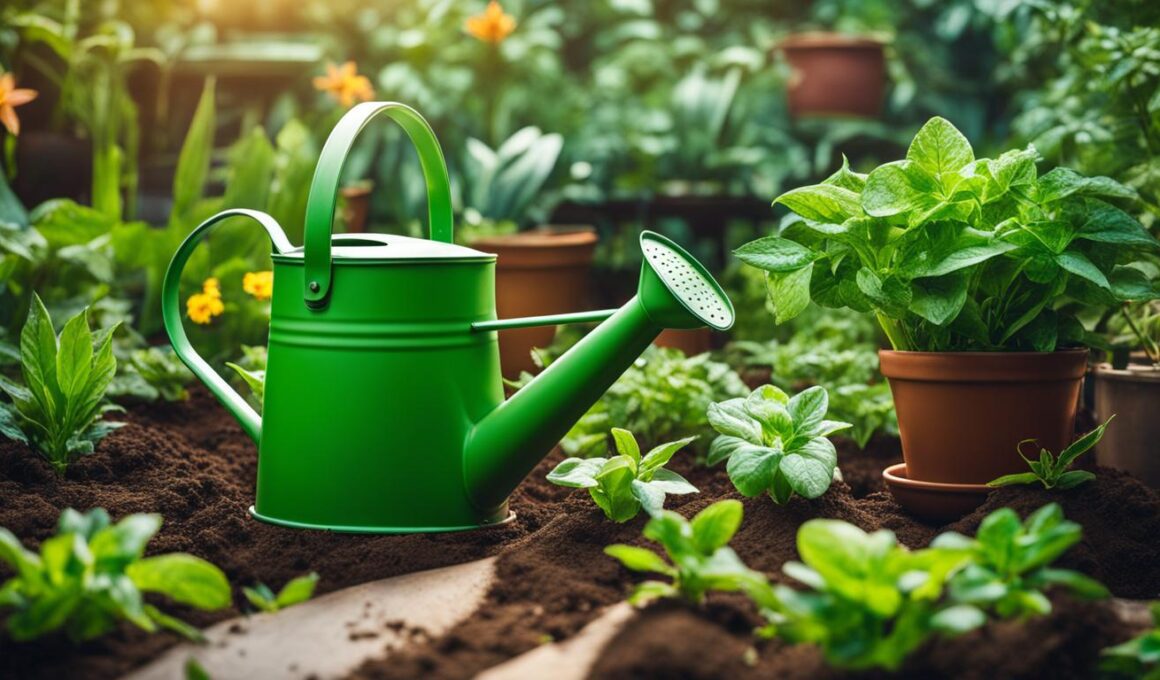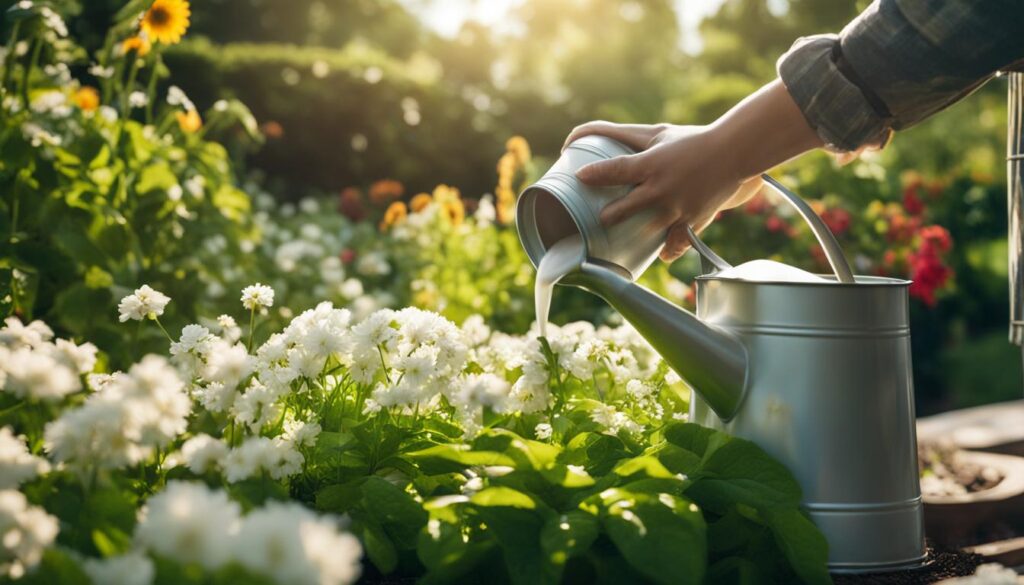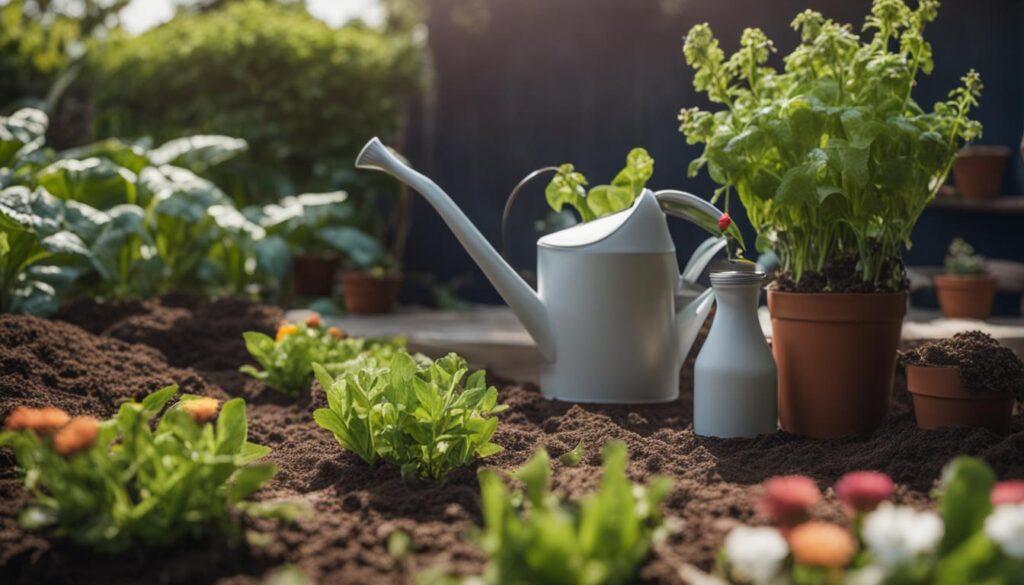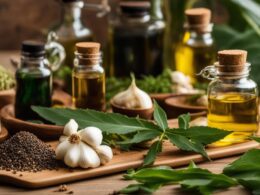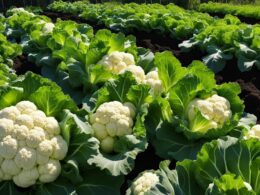Milk is often recognized for its nutritional benefits for humans, but did you know it can also provide various advantages for garden plants? As a milk as garden fertilizer, it serves as a natural solution packed with essential nutrients like calcium and vitamins, enhancing plant growth and contributing to their overall health. Additionally, milk possesses antifungal and pesticidal properties, providing natural gardening solutions without relying on synthetic chemicals. While it’s beneficial, it’s crucial to understand how to use milk properly in your garden, avoiding problems such as bacterial growth, plant damage, and unwanted odors. By using milk appropriately, you’ll nourish your plants with nutrients and disease prevention, fostering a healthier and more sustainable garden ecosystem.
Key Takeaways
- Milk offers essential nutrients for your plants like calcium and vitamins, promoting plant health with milk and enhancing growth.
- Applying milk helps to prevent common garden issues such as blossom end rot in vegetables and powdery mildew on leaves.
- When used correctly, milk can serve as an effective, organic fertilizer that boosts plant health and manages pests and diseases naturally.
- It’s important to dilute milk and apply it appropriately to avoid bacterial growth, odors, and plant damage in your garden.
- Utilizing milk in your garden supports a more holistic and environmentally friendly approach to gardening and sustainable plant growth.
The Nutritional Power of Milk for Plants
Milk’s fertilizer benefits are well-documented, as it provides plant growth nutrients that are essential for healthy and vibrant garden plants. The garden calcium source that milk offers is just one of the many advantages it brings to the table, along with its potential as a natural pesticide. In this section, we’ll delve into the vital nutrients milk contains and how they can help prevent common plant issues while promoting robust growth.
Calcium and B Vitamins: Essential for Plant Growth
Milk contains crucial nutrients like calcium and B vitamins, which are necessary for robust plant growth. Calcium, in particular, helps strengthen plant cell walls, contributing to healthier and more vigorous plants. B vitamins also play a vital role in plant development and can help in stress reduction and root development. Incorporating milk into your garden care regimen can provide these essential nutrients while offering a more sustainable and eco-friendly approach to gardening.
- The calcium in milk is crucial for strong cell walls, leading to healthy plants
- B vitamins contribute to overall plant development, helping to reduce stress and promote root growth
- Milk serves as a natural source of these essential nutrients, making it a valuable addition to your garden
Blossom End Rot Prevention in Common Garden Vegetables
Common garden vegetables such as tomatoes, peppers, and squash are susceptible to blossom end rot, a condition often linked to calcium deficiencies. Milk, as a calcium-rich additive, can help prevent this issue, ensuring that vegetables develop properly without the characteristic blackened end rot. Regularly applying diluted milk to the soil around these susceptible plants can protect them from calcium deficiency and promote healthy growth.
A Natural Defense Against Powdery Mildew
Research has supported milk’s effectiveness as a natural antifungal agent, particularly against the common garden problem of powdery mildew, which affects a variety of plants, including grapes and zucchini squash. A milk-based solution can be applied to leaves as a preventive measure or targeted treatment for this frustrating issue. Utilizing milk in this manner not only supports your plants’ health but can also reduce reliance on synthetic chemical treatments.
| Plant Issue | Milk Solution Effectiveness |
|---|---|
| Blossom End Rot | Prevention through calcium supplementation |
| Powdery Mildew | Antifungal treatment & prevention |
| General Plant Health | Nutrient & growth enhancement |
Implementing milk as part of your garden care routine can provide vital nutrients and natural pest control options for a more sustainable, thriving garden.
Appropriate Application of Milk to Avoid Plant Damage
While milk offers numerous benefits for gardening, it is essential to apply it correctly to avoid plant damage. Excessive application can lead to bacterial proliferation, which may stunt plant growth, cause wilting, and generate unpleasant odors due to spoilage. Hence, it is crucial to understand the risks associated with overuse and choose the right type of milk for your garden.
The Risk of Overuse: Bacterial Growth and Odor Issues
Using milk sparingly in the garden is critical as excessive application can lead to bacterial proliferation, which may stunt plant growth, cause wilting, and generate unpleasant odors due to spoilage. To avoid these issues, it is crucial to follow some key guidelines:
- Apply milk in moderation to ensure you do not over-saturate your plants and soil.
- Avoid applying milk on hot sunny days, as this can lead to rapid bacterial growth and foul odors.
- Pay attention to any changes in your plants’ health and growth and adjust your milk application accordingly.
Choosing the Right Milk: Fat Content Considerations
| Type of Milk | Suitability for Gardening | Reason |
|---|---|---|
| Reduced-fat or low-fat milk | Recommended | Less likely to cause foul odors and diseases like black rot, soft rot, and Alternaria leaf spot. |
| Whole milk | Not recommended | Higher fat content can lead to spoilage and increased risk of plant diseases. |
| Skim milk | Not recommended | Lacks some essential nutrients for plant health and may still cause spoilage and plant diseases. |
It’s recommended to use reduced-fat or low-fat milk over whole or skim milk to avoid potential issues such as foul odors and diseases like black rot, soft rot, and Alternaria leaf spot in certain crops. By choosing the appropriate milk type and applying it correctly, you can effectively reap the benefits of milk application in gardening while avoiding plant damage.
How to Dilute and Apply Milk in Your Garden
A proper dilution ratio is essential for allowing plant leaves and soils to absorb milk’s nutrients adequately without causing harm or attracting pests. Whether you want to boost your garden’s health or protect your plants from fungal diseases, using the right mixture and application techniques is crucial. In this section, we’ll explore the appropriate mixing ratios, spraying techniques, and direct soil application methods for using milk in your garden.
Mixing Ratios for Optimal Plant Absorption
When diluting milk for plants, it’s important to maintain a proper dilution ratio. A 50 percent milk to 50 percent water mixture is often recommended to ensure plants receive adequate nutrients without causing damage or attracting pests. Be sure to mix the solution thoroughly to avoid uneven distribution of nutrients when applying it to your garden.
Spraying Techniques for Effective Fungal Prevention
Milk can be applied to plant leaves using a spray bottle, providing a controlled and even coating that ensures absorption and reduces the risk of excess buildup. This method is particularly effective in preventing the development of fungal diseases, such as powdery mildew.
- Fill a spray bottle with the diluted milk mixture.
- Hold the spray bottle about 12 inches away from the plant leaves.
- Apply a light, even coating to the front and back of the leaves.
- Repeat this process every 10 to 14 days as needed.
For larger gardens, a garden hose sprayer with the appropriate milk-to-water ratio can be utilized for broad coverage. This method allows for quicker, more expansive coverage, ensuring all plants in the garden receive the benefits of milk application.
Direct Soil Application for Root Uptake
Pouring the diluted milk mixture directly into the soil can be highly beneficial for plants, as it enables the roots to absorb the milk’s nutrients and promote overall health and vitality in the garden. Follow these steps for effective soil application:
- Measure out the appropriate amount of diluted milk for your garden’s size and the number of plants you’re treating.
- Pour the milk mixture evenly around the base of each plant, taking care not to splash it onto the leaves, as this could attract pests and cause fungal growth.
- Water the plants as usual to help the milk mixture penetrate the soil and reach the roots.
- Repeat this process every four to six weeks as needed to maintain optimal plant health.
Combining proper mixing ratios with effective application techniques, you can enhance your garden’s health and promote lush, thriving plant growth using the natural benefits of milk.
Organic Gardening: Milk as a Pesticide and Soil Benefactor
Organic gardening practices often involve seeking out eco-friendly alternatives to chemical pesticides and fertilizers. Milk has emerged as a versatile ally in this quest, performing various functions, ranging from natural pest control to enhancing soil quality. This section delves into these benefits and addresses the potential drawbacks linked to using milk in gardening.
Combatting Pests Naturally with Milk Fertilizer
In some instances, milk has been employed to alleviate plant diseases and combat pests like aphids. This approach offers an organic solution to pest problems without resorting to harmful chemicals, minimizing the impact on the environment and the users. The bioactive components in milk act against various plant pathogens, allowing gardeners to implement a more sustainable, holistic approach to maintaining a flourishing garden.
Boosting Soil Quality Through Microbial Activity
Soil health is a crucial aspect of nurturing a thriving garden, and milk can serve as a valuable resource in this process. The beneficial proteins and sugars in milk can increase microbial activity in the soil, thereby improving soil health and structure. Enhanced microbial activity contributes to the proliferation of essential nutrients, which, in turn, proves advantageous for both plant growth and crop yield.
- Encourages beneficial microorganisms that improve soil fertility and aeration
- Breaks down organic matter into plant-available nutrients
- Promotes uptake and assimilation of nutrients for improved crop vigor and development
Addressing the Downside: Potential Drawbacks of Milk in Gardening
Despite its promised benefits, using milk in the garden also comes with potential drawbacks. It’s crucial to strike a balance in milk application to avoid potential pitfalls, like:
- Foul odors from bacterial breakdown, which can result from overuse or applying high-fat milk
- Unsightly fungal growth on leaves due to the milk’s nutritious content when not appropriately diluted or applied
By using milk judiciously and following proper dilution and application guidelines, these drawbacks can be mitigated, and the positive impacts of using milk as a natural pesticide and soil booster can be reaped to their full extent.
Can Milk Help Treat Molybdenum Deficiency in Plants in the Garden?
Milk is not effective in treating molybdenum deficiency plants in the garden. Molybdenum is an essential micronutrient for plant growth, and milk does not contain significant amounts of this element. It is better to use molybdenum-rich fertilizers or treatments specifically designed to address molybdenum deficiency in plants.
Conclusion
Utilizing milk in the garden can significantly enhance the natural health and resilience of your plants when applied appropriately. As a source of vital nutrients and a means of bolstering plants against common diseases, milk can play an important role in promoting more holistic garden care and environmentally friendly gardening practices. By introducing this nutritious substance into your garden, you can foster sustainable plant growth and cultivate a thriving ecosystem.
While the benefits of gardening with milk are considerable, it’s important to remember that proper application is key to avoiding potential drawbacks. Excessive use or incorrect dilution ratios can lead to bacterial growth and odors, or even create conditions for fungal infections on plant leaves. To maximize the advantages of milk in your garden and minimize the risks, aim for a balanced and informed approach when using milk as a fertilizer or natural pesticide.
In conclusion, incorporating milk into your gardening routine can serve as an effective and versatile tool for maintaining plant health and fostering a more sustainable approach to garden care. By understanding the proper methods for application and being mindful of potential issues, you can successfully implement milk as part of your holistic gardening strategy. The result will be a healthier, more robust, and environmentally friendly garden that you can be proud of.





